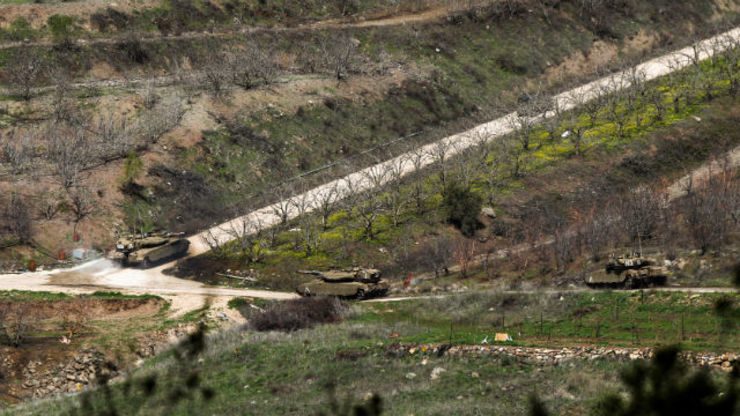SUMMARY
This is AI generated summarization, which may have errors. For context, always refer to the full article.

The Sunday attack, near Quneitra on the Syrian-controlled side of the Golan Heights, enraged Hezbollah’s supporters, but analysts said the group would avoid a major escalation with Israel.
Iran’s elite Revolutionary Guards confirmed the death of one of their generals in a statement on their website.
“General Mohammad Ali Allahdadi and a number of fighters and Islamic Resistance (Hezbollah) forces were attacked by the Zionist regime’s helicopters,” it said.
“This brave general and some members of Hezbollah were martyred.”
A source close to Hezbollah said 6 Iranians had been killed in the attack. Hezbollah told Agence France-Presse that it was not the source of that toll.
Among Hezbollah’s dead was Jihad Mughniyeh, the son of an assassinated commander from the group, and Mohammed Issa, a commander responsible for Hezbollah’s operations in Syria and Iraq.
Once solely focused on fighting Israel, Hezbollah is now deeply involved in the war in neighboring Syria, where it backs President Bashar al-Assad.
With its forces spread thin, and little appetite in fragile Lebanon for a new conflict with Israel, analysts said Hezbollah would seek to respond to the raid without provoking a full-on war.
‘Resistance will decide response’
On Monday afternoon, mourners gathered in Hezbollah’s south Beirut stronghold for Mughniyeh’s funeral.
“God willing, the resistance will retaliate but the leadership of the resistance will be the one to decide the nature and timing,” said Hassana Sadaqa, as she prepared to pay her respects.
Mourners chanted “Our party is Hezbollah, our leader is Nasrallah” as the coffin was carried through the streets.
Mughniyeh will be buried in the same grave as his father Imad, who was killed in a 2008 car bombing that Hezbollah blamed on Israel.
Hezbollah’s Al-Manar said the 6 fighters were killed as they carried out reconnaissance.
But an Israeli security source said an Israeli helicopter carried our a strike on “terrorists” who were preparing an attack on the Jewish state.
The strike came days after Hezbollah chief Hassan Nasrallah threatened to retaliate against Israel for its repeated strikes on targets in Syria and boasted the movement was stronger than ever.
He touted its sophisticated arsenal, including Fateh-110 missiles, which have a range of 200 kilometers (125 miles) or more and are capable of hitting much of Israel.
‘Israel called Hezbollah’s bluff’
Analysts said the precision Israeli strike, days after Nasrallah’s bellicose remarks, stood to embarrass Hezbollah.
“What happened is that the Israelis called Hezbollah’s bluff last night,” said Hilal Khashan, a professor of political science at the American University in Beirut.
But he said Hezbollah’s response would be limited “because if it retaliates, it will be another war. Hezbollah is in Syria and it is not ready for another war against Israel.”
Walid Charara, an analyst close to Hezbollah, said he had “no doubt” that the group would respond, either from Lebanese or Syrian territory.
“Israel has decided to expand the line of confrontation to Syria,” he said.
Khashan said Hezbollah could resort to small-scale attacks, like a roadside bomb on the ceasefire line with Israel it claimed in 2014, but would avoid a more serious response.
“Nasrallah will say the Israelis are trying to provoke us to help in their elections and we will not fall into their trap. That’s the best they can do.”
Lebanese media weighed the prospect of conflict, with the Al-Safir newspaper saying Hezbollah needed something “more than a reply and less than a war.”
In Israel, analysts made the same calculation.
“Hezbollah doesn’t want a full-fledged war,” said Yoram Schweitzer, a former Israeli military counterterrorism chief.
“It has a number of possibilities to respond in different arenas. We assume that it currently does not want full contact,” he told Agence France-Presse.
Israel occupied parts of Lebanon for 22 years until 2000 and the two countries are still technically at war.
In 2006, Israel fought a bloody war against Hezbollah that killed more than 1,200 people in Lebanon, mostly civilians, and some 160 Israelis, mostly soldiers. – Rappler.com
Add a comment
How does this make you feel?
There are no comments yet. Add your comment to start the conversation.